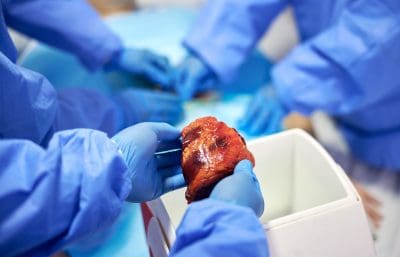The journey to receiving a kidney transplant often feels overwhelming, but understanding the necessary steps can provide clarity and direction. Each step serves a crucial purpose in ensuring potential recipients meet medical requirements and are prepared for this life-changing procedure. The process requires patience, dedication, and careful attention to detail, but knowing what to expect can make it more manageable.
Getting listed for a kidney transplant involves multiple health care providers, extensive testing, and significant personal commitment. Working closely with medical teams and following established protocols helps improve the chances of successful listing and eventual transplantation. Understanding each step in detail allows candidates to take a more active role in their health care journey.
Step 1: Consult a specialist and get a referral
The path begins with consulting a nephrologist, a physician specializing in kidney health. This specialist conducts thorough evaluations of kidney function through blood tests, imaging studies, and physical examinations to determine if transplantation offers the best treatment option. After confirming candidacy, the nephrologist provides a crucial referral to a transplant center.
Early communication with both primary care physicians and kidney specialists helps expedite the referral process. Gathering comprehensive medical records becomes essential at this stage. These records should include detailed treatment histories, all laboratory results, medication lists, and previous imaging studies. Having complete documentation creates a solid foundation for the transplant center evaluation and can significantly speed up the process.
Step 2: Research and choose a transplant center
Selecting an appropriate transplant center represents one of the most important decisions in the process. Location plays a crucial role, as candidates must be able to reach the center quickly when an organ becomes available. Additionally, regular follow-up appointments and testing require frequent visits, making accessibility an important consideration.
Program success rates and outcomes provide valuable insight into a center’s expertise. The United Network for Organ Sharing maintains detailed statistics on transplant center performance, including survival rates and wait times. Many candidates find it helpful to research multiple centers and compare their protocols, support services, and overall approach to transplant care.
Medical insurance coverage also influences center selection, as not all transplant programs participate in all insurance networks. Working with insurance providers early in the process helps identify covered facilities and understand potential out-of-pocket expenses. Some candidates choose to pursue evaluation at multiple centers to increase their opportunities for listing.
Step 3: Complete the medical evaluation
The medical evaluation process involves comprehensive testing to assess transplant candidacy. Physical examinations provide baseline health information, while blood tests determine blood type, tissue compatibility, and overall health status. Advanced imaging studies, including chest X-rays, CT scans, and cardiac stress tests, evaluate organ systems and identify potential complications.
Cardiac evaluation holds particular importance, as heart health significantly impacts surgical safety. Many centers require extensive cardiac testing, including electrocardiograms, echocardiograms, and sometimes cardiac catheterization. These tests ensure candidates can safely undergo transplant surgery and recover successfully.
Beyond physical health, transplant teams evaluate psychological preparedness and social support systems. Mental health professionals assess candidates’ ability to understand and comply with complex medical regimens. Social workers evaluate support networks, financial resources, and potential barriers to successful transplantation. These assessments help ensure candidates have the necessary resources for successful outcomes.
Step 4: Address health and lifestyle factors
During evaluation, transplant teams often identify areas requiring attention before listing can proceed. Weight management frequently emerges as a crucial factor, as maintaining a healthy body mass index improves surgical outcomes and recovery. Many centers provide nutritional counseling and weight management support to help candidates meet these requirements.
Smoking cessation becomes mandatory, as tobacco use significantly increases surgical risks and can compromise transplant success. Centers typically require complete cessation and may conduct regular screening to ensure compliance. Support programs and medications can help candidates achieve and maintain tobacco-free status.
Management of chronic conditions such as diabetes and hypertension demonstrates candidates’ ability to maintain their health. Consistent medication compliance, regular monitoring, and lifestyle modifications show commitment to long-term health maintenance. Working with specialists to optimize treatment of these conditions improves both listing eligibility and potential transplant outcomes.
Step 5: Navigate the listing process
Once meeting all requirements, candidates join the kidney transplant waiting list. The United Network for Organ Sharing maintains this national list, using complex algorithms to match donors with recipients. Blood type compatibility, tissue matching, medical urgency, and time on dialysis all influence waiting time and priority status.
Maintaining active status requires ongoing commitment to health maintenance. Regular communication with the transplant center ensures current medical information remains available for matching purposes. Centers require periodic updates on health status, medications, and contact information to maintain listing eligibility.
Many candidates explore living donation options while waiting for deceased donor organs. Living donation often reduces wait times significantly and can provide better long-term outcomes. Transplant centers usually offer education and support for candidates interested in pursuing living donation, including assistance with donor evaluation and selection.
Looking ahead
Getting listed for kidney transplantation marks an important milestone in treatment. Through careful preparation and dedication to meeting requirements, candidates can optimize their chances for successful listing and eventual transplantation. Support from family, friends, and healthcare providers proves invaluable throughout this journey, while staying informed about transplant procedures and maintaining hope helps sustain candidates through the waiting period.
Remember that transplant teams work diligently to support candidates through each step of this process. Their expertise guides patients toward the goal of successful kidney transplantation and improved quality of life. With proper preparation and commitment, candidates can navigate the listing process successfully and move closer to receiving their life-changing transplant.
This story was created using AI technology.






